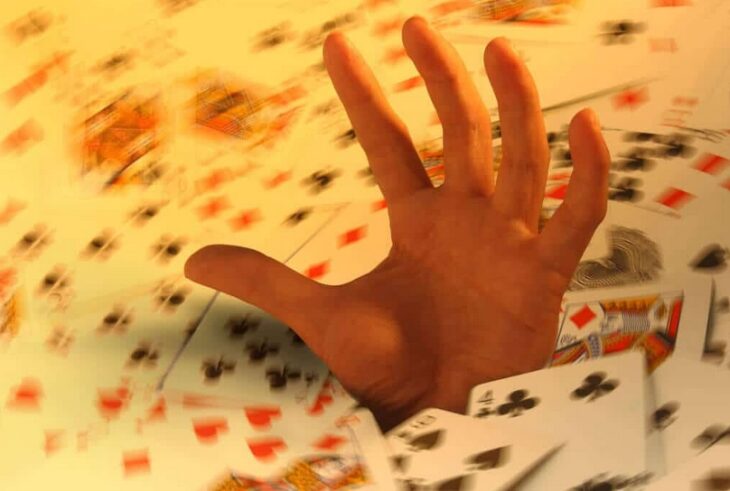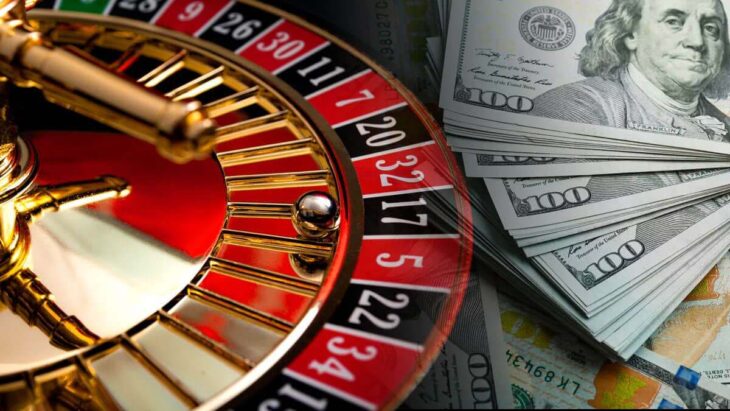Online gambling is a global hobby that can cause harm when misused. Gamblers should consider playing for fun and only spend money they can afford to lose. Casino gambling demands control and self-discipline. With the rampant cases of gambling addiction in Poland, casinos educate gamblers on healthy gambling. Players are now informed of risks associated with gambling.
Gambling turns to obsession when a player loses sight of the fun aspect, becomes obsessed, and makes gambling the center of their life. When players become addicted, they invest their money and time in gambling. Some take gambling as a career and tend to chase their losses, losing much money in the long run. Compulsive gamblers get out of control and lose their self-esteem and self-confidence. Our expert, Klara Czerwinska, explains gambling addiction facts and statistics in Poland.

Source: addictioncenter.com
Contents
Signs and Symptoms
Gambling disorder wreaks havoc in gambler’s lives. Although drug addiction works as a substance-based disorder, gambling addiction is associated with a lack of impulse control. Psychologists have classified gambling as an emotional problem that leads to financial consequences.
How do you realize you are addicted? A gambler may miss important family events or miss work. They do not have the power to stop. Instead, the drive is powerful as they keep wagering high with the hope of winning on the next bet.
Diagnosis
A player develops some significant signs for 12 months. Symptoms include desiring to gamble with more money to get excited. A player may lose in a particular casino game but staking higher to recover losses. Since gambling is more attached to emotions, some players become restless when trying to stop.
According to gambling statistics in Poland, three to five gamblers out of every hundred struggle with gambling addiction. Many are willing to commit crimes to get money for gambling purposes. Addicts tend to spend more of their time thinking about gambling. They get overwhelmed and develop problems with family and at workplaces.

Source: addictioncenter.com
Triggers
According to statistics about gambling in Poland, many are drawn to addiction by job-related stress and loneliness. Gamblers who develop gambling addiction are considered irresponsible and dependable people. Gambling addiction is triggered by traumatic circumstances that lead to a change in behavior.
There are cases where people turn into gambling due to depression or anxiety. They take gambling as a remedy only to become addicted and try to run away from a problem. Friends take a crucial role in triggering addiction as there is too much pressure from the group. Failure to contain the stress leads to a severe gambling problem.
College students and gambling
Gambling in college is prevalent in Poland. The availability of mobile phones and the internet has fueled the growth significantly. However, many college students are trapped in the world of addiction. Students between the age of 20 and 30 years have elevated gambling problems. According to gambling statistics, 75% of students in college have gambled during the past year.
In addition, national studies have proved that 1 in 20 college students are compulsive gamblers. The rate of compulsive gamblers in college is more than double the rate of the adult population. Recent studies conducted recently have shown that 23% of college students engage in online gambling. The only wait to help such students is helping them land on reputable sites and platforms that promote responsible gambling, such as those reviewed at https://kasynos.online/.

Source: uk-rehab.com
Addiction
The feeling of gambling is similar to when taking drugs or alcohol. According to gambling statistics, the possibility of triggering gambling addiction increases 23-fold for persons affected by alcohol use. There are about 750000 young people aged 14-21 who have developed a gambling addiction. Gambling behavior patterns change the gambler’s mood and state of mind making a player more restless.
A player uses the feeling to keep gambling to attain the same effect. They develop tolerance and increase their gambling activity to satisfy their emotions. Gamblers place higher wagers to recover their significant losses to remain high. They are hooked to a vicious circle where gambling cravings increase over time.
At this point, resisting becomes difficult as intense cravings take the wheel. Since resistance has grown weaker, addicted gamblers develop psychological, personal, physical, social problems.
Gambling becomes an addiction when a player cannot stop causing a negative effect on an individual’s life.
Gambling and criminal activity
Gambling addiction correlates with criminal activities. Addicted players are likely to commit crimes to get money for gambling purposes. Compulsive gamblers commit crimes such as fraud, forgery, embezzlement, shoplifting, among others. More than two-thirds of addicted gamblers are reported to commit crimes directly related to gambling. 80-90% of gamblers engage in illegal acts to get money for gambling.
About 30% of compulsive gamblers have stolen from work, and 63% of them are reported to write bad cheques. In other studies, 57% of gamblers steal to finance their gambling activities, equal to a theft of $30 million.

Source: thecasinowizard.com
Gambling in Men vs. Women
Women have joined the moving wagon, and they seem to overthrow men in gambling. Women in Poland have dominated mobile platforms with 52% of all gamers. They also occupy social media platforms with 54%. Polish women have indulged in gambling and seem to struggle with addiction more than men.
The rates have increased during the coronavirus pandemic, where gambling became a popular hobby. Having a high number on social media platforms, online casinos have targeted them and lured them into gambling. Some are swept away by the craving to gamble more than men.
Treatment
Casinos have invested much in training their gamblers on the importance of healthy gambling. A significant number of players seem now to understand the house advantage. However, taking therapy sessions has helped addicted gamblers to get back to their everyday lives. Cognitive behavior therapy has helped victims reduce the urge to gamble by consistently exposing them to the behavior.
In addition, treatment has changed the way gamblers feel and think about gambling. Medications such as nod stabilizers and antidepressants have reduced symptoms and illnesses that come with gambling addiction. Self-help groups have changed compulsive gamblers by allowing them to share with others in a similar situation.
Adults in the age of 45 are more vulnerable to gambling addiction due to loneliness. Gambling should be considered a controlled form of entertainment. Interested people should draft a budget to help them not chase their losses. Gambling is fun but can lead to addiction, depression, family breakups, and suicide if not controlled.
